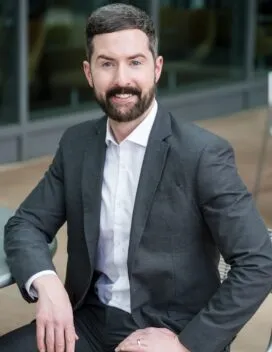More about Wes
What is your current job and how did your planning degree prepare you for it?
I currently serve as the Chief Transportation Strategist at the U.S. Department of Energy’s National Renewable Energy Laboratory (NREL), where I lead the Center for Integrated Mobility Sciences’ strategic plan and partnerships. In this role, I work at the intersection of research, technology, and public-private collaboration to accelerate the transition to a clean, sustainable transportation future.
My master’s degree in Urban and Regional Planning from the University of Illinois laid the foundation for this work by sharpening my systems thinking, policy development, and stakeholder engagement skills. It gave me the tools to understand how infrastructure, technology, and community needs come together—and how planners can bridge the gap between visionary ideas and real-world implementation. The program also fostered my passion for building resilient, affordable, and sustainable communities through evidence-based strategy and public service.
Why did you choose to study urban planning?
I was drawn to urban planning because it combines purpose-driven work with tangible impact. I’ve always been fascinated by the way physical systems—like transportation, energy, and land use—shape people’s lives, and I wanted to be in a position to help design those systems in ways that are more efficient and sustainable. Urban planning offered a perfect convergence of policy, data, design, and public service. The field also provides a powerful platform to bring people together—from government, industry, and community—to solve complex problems in a coordinated and lasting way.
What advice would you share with someone who is considering a career in urban planning?
If you’re considering a career in urban planning, lean into its interdisciplinary nature and never lose sight of the public good. Planning is a powerful tool for systems change—but to be effective, it requires both technical knowledge and the ability to collaborate across sectors and perspectives. Be curious, build relationships, and focus on impact. And remember: the most effective planners are those who can communicate clearly, think strategically, and translate big ideas into actionable steps that make communities stronger, more connected, and more resilient.
